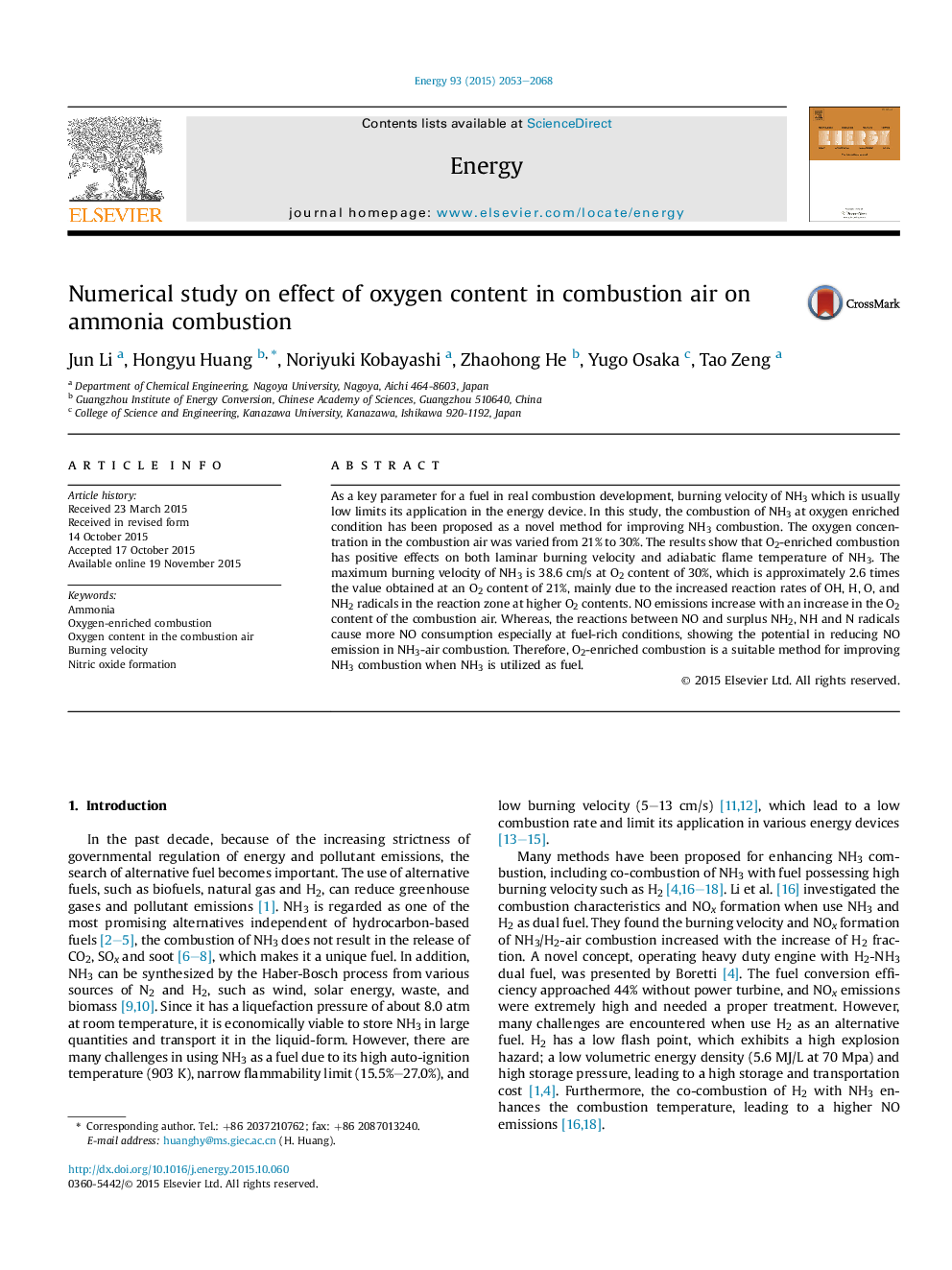| کد مقاله | کد نشریه | سال انتشار | مقاله انگلیسی | نسخه تمام متن |
|---|---|---|---|---|
| 1731643 | 1016095 | 2015 | 16 صفحه PDF | دانلود رایگان |
• NH3 combustion at O2 enriched condition was firstly investigated.
• O2 enriched combustion has a positive effect on NH3 combustion.
• Reaction rate of production of major and intermediate species has been improved.
• O2 enriched combustion can be used as an effective method for NH3 combustion.
As a key parameter for a fuel in real combustion development, burning velocity of NH3 which is usually low limits its application in the energy device. In this study, the combustion of NH3 at oxygen enriched condition has been proposed as a novel method for improving NH3 combustion. The oxygen concentration in the combustion air was varied from 21% to 30%. The results show that O2-enriched combustion has positive effects on both laminar burning velocity and adiabatic flame temperature of NH3. The maximum burning velocity of NH3 is 38.6 cm/s at O2 content of 30%, which is approximately 2.6 times the value obtained at an O2 content of 21%, mainly due to the increased reaction rates of OH, H, O, and NH2 radicals in the reaction zone at higher O2 contents. NO emissions increase with an increase in the O2 content of the combustion air. Whereas, the reactions between NO and surplus NH2, NH and N radicals cause more NO consumption especially at fuel-rich conditions, showing the potential in reducing NO emission in NH3-air combustion. Therefore, O2-enriched combustion is a suitable method for improving NH3 combustion when NH3 is utilized as fuel.
Journal: Energy - Volume 93, Part 2, 15 December 2015, Pages 2053–2068
